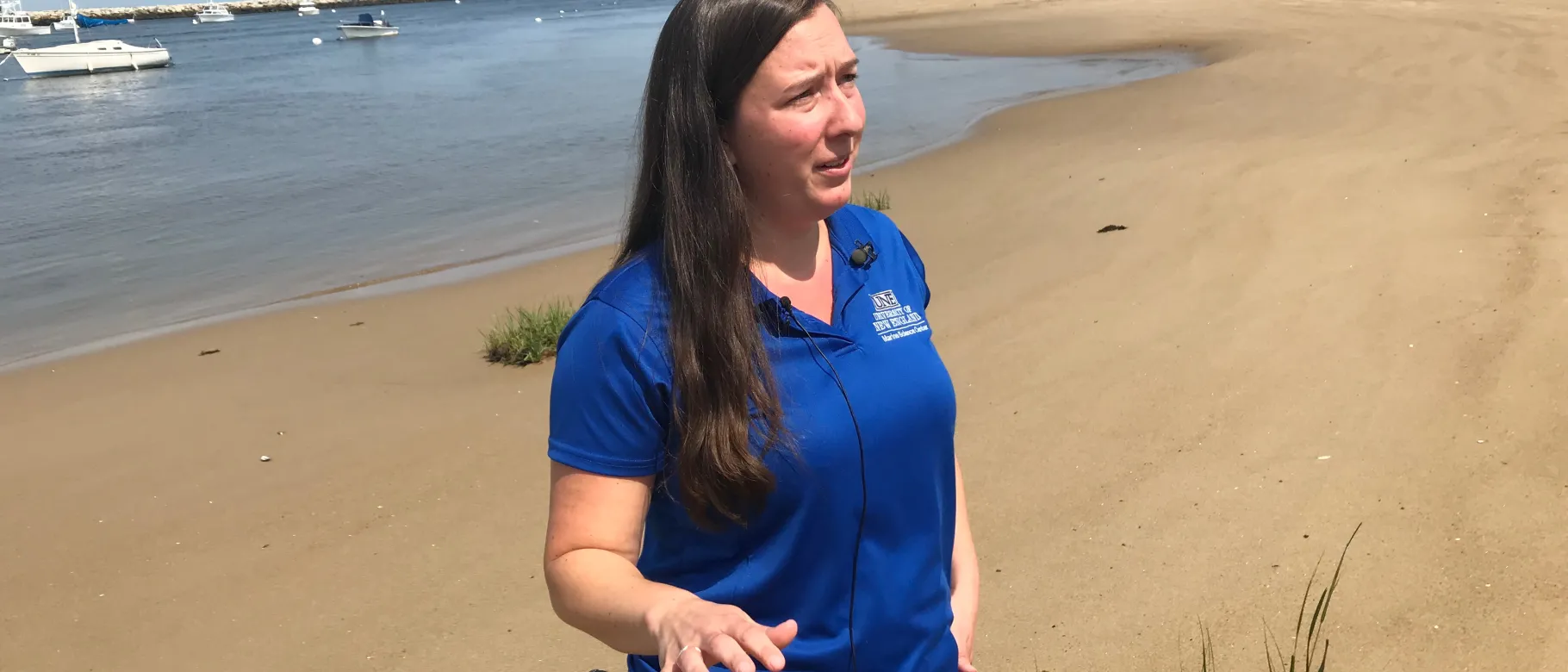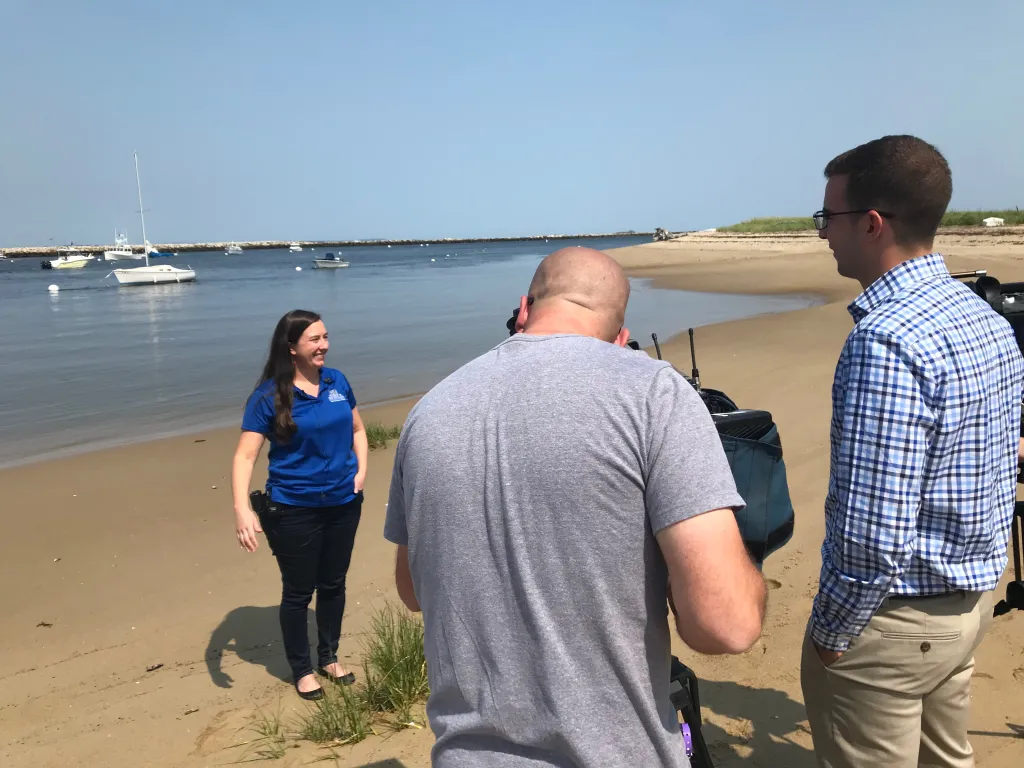UNE’s Alicia Williams discusses recent seal deaths in Maine with WGME and WMTW

Federal investigators are working to determine why so many dead or sick seals have been washing up on Maine beaches in recent months.
More than 400 dead or stranded seals have been found along the Maine coast this year, with more than 100 discovered on Southern Maine Beaches in the past two weeks. Many of them have tested positive for either avian influenza or phocine distemper virus, according to the National Oceanic and Atmospheric Administration (NOAA).
Alicia Williams, Ph.D., assistant lecturer in the Department of Marine Sciences, researches how microbes interact with each other and with living things in the ocean. Williams told WGME and WMTW the viruses NOAA is looking into are transmitted by breathing the same air or through physical contact, similar to the way the flu is transmitted among humans.
“A common behavior among seals is that they will haul out of the ocean to a rock or land,” Williams says. “They usually do this in big groups. That means they’ll be close together.”
Many people have been shocked by the large number of dead seals washing up. Williams says it is not the first time this has happened. In 2011 more than 160 seals were found dead on coastal New England beaches. Tests on some of those animals showed signs of avian influenza.
